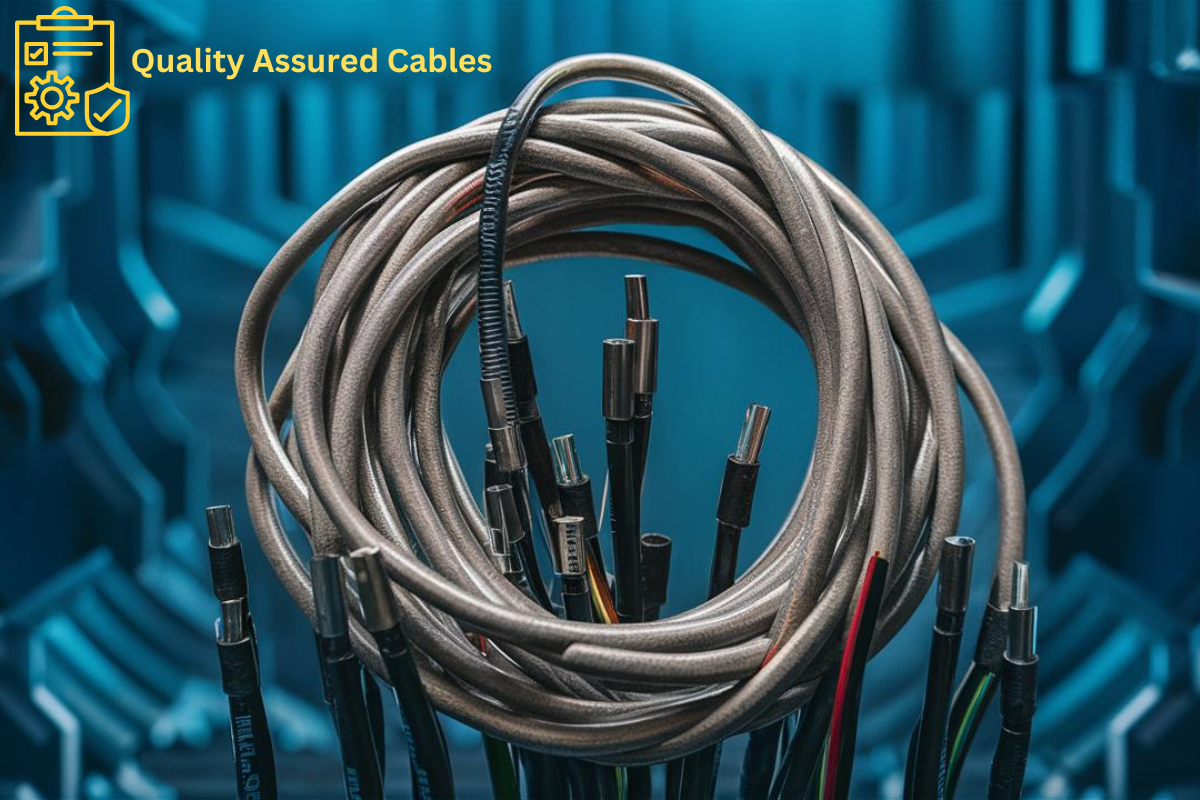- An ISO 9001:2015, 14001:2015 & 45001:2018 Company

Why is Quality Control and Testing Crucial for Cable Reliability?
The reliability of the cables is always at the top. Quality control and testing are essential components in ensuring the reliability of cables. This importance stems from several critical factors impacting various applications' safety, performance, and longevity. Any cable failure can lead to severe consequences for industrial, commercial, or other applications, including equipment damage, operational downtime, and even safety hazards. This is where quality control and testing come into the role. Ensuring that cables are strictly tested and meet safety and quality standards is crucial for their reliability and performance. This article will explain why quality control and testing are essential for cable reliability.
What is the Importance of Quality Control and Testing?
The following points show the importance of quality control and cable reliability testing.
- Ensures Safety: High-quality cables are designed to perform under various environmental conditions, such as extreme temperatures, humidity, and mechanical stress. Testing ensures that cables can withstand these conditions without degradation. This is particularly important for industrial applications that expose cables to harsh environments. By ensuring cables are tested for performance, cable manufacturers can guarantee they will function reliably over their intended lifespan.
- Compliance with Standards: Numerous international and national standards govern the manufacture and testing of cables. These standards are in place to ensure that cables meet minimum safety and performance requirements. Quality control processes ensure that cables comply with these standards, assuring customers and regulatory bodies that the cables are fit for purpose. Non-compliance can lead to legal issues, product recalls, and damage to a company's reputation.
- Reducing Failures and Downtime: Cable failures can result in significant downtime and costly repairs. Downtime can have severe economic impacts on critical applications, such as power distribution. Quality control and testing help identify potential weaknesses in cables before they are installed. This proactive approach reduces the likelihood of failures, ensuring continuous and reliable operation.
- Maintaining Brand Reputation: For cable manufacturers, maintaining a solid brand reputation is essential. Delivering high-quality, reliable products builds customer trust and loyalty. On the other hand, frequent product failures and recalls can spoil the brand's image. By implementing stringent quality control and testing procedures, manufacturers can demonstrate their commitment to quality and reliability, enhancing their reputation in the market.
- Customer Satisfaction: Strict quality control and testing ensure customers receive high-quality cables that meet their expectations. This leads to higher satisfaction as the cables perform reliably in their applications. When cables are strictly tested, the chances of defects or failures are minimized. Satisfied customers are more likely to become repeat buyers and recommend the products to others, also known as brand loyalty.
- Cost Savings: Reliable, well-tested cables are less likely to fail, leading to lower maintenance and repair costs. This is a significant cost saving for businesses relying on these cables. Durable cables undergoing extensive testing have a longer lifespan, reducing the need for frequent replacements. This results in cost savings for both manufacturers and customers.
- Durability and Reliability of Cable: Quality control processes involve inspecting the raw materials used in cable manufacturing. Ensuring high-quality materials contributes to the overall durability and reliability of the cables. Well-tested cables have a predictable lifespan. This reliability reduces unexpected failures and the associated costs.
Let’s End-up with
Quality control and testing are fundamental to cable reliability. These are essential for ensuring cable reliability. Manufacturers can prevent failures, enhance performance, and maintain their reputation by strictly testing cables for safety, performance, and compliance with standards. This ensures that end-users receive reliable and safe products that meet their needs. As technology advances and the demand for reliable electrical and data transmission grows, the importance of quality control and testing in the cable industry will only continue to increase.
 English
English


 C701, Tower-C, Noida One
C701, Tower-C, Noida One
